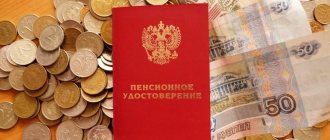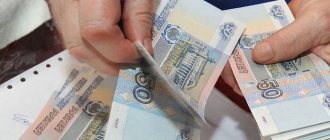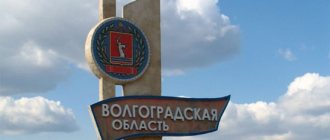- home
- Reference
- Non-state pension provision
Throughout the history of the pension system in the Russian Federation, its fundamental changes have been carried out more than once. The most notable of them occurred in 2002, when old-age pensions in Russia were divided into 3 separate groups: basic (cancelled), insurance and funded. The latter is of the greatest interest, since before the 2002 reform there were no analogues in our country.
The funded part was allocated as a separate type of pension payment in 2013. In accordance with the law, citizens have the right to independently determine the need for the formation of this type of security and decide how it will happen - transferred to the Pension Fund or to a non-state pension fund (NPF). The work of a non-state pension fund is a licensed activity and for certain violations the organization may lose its document.
- 5.1 Top 5 most reliable companies
Can NPFs be trusted?
Many citizens who have the right to control how their future pension provision will be formed, although they decided to transfer part of the insurance contributions to the funded part, however, left it in the state fund. This position is motivated by many by the fact that savings in the Pension Fund are more secure.
Important! By saving money in the Russian Pension Fund, citizens have virtually no influence on the size of their future pension, since the amount of savings increases (is indexed) only within the framework of inflation.
NPFs propose to increase future pensions through investment income, which is generated as a result of investing pension funds of citizens in various projects (mainly shares and other securities). So is there a risk of losing your pension by forming it in a non-state pension fund?
The answer to this question is somewhat ambiguous. There is no need to worry about the amounts that the employer or the citizen himself transfers to the funded portion. Federal legislation provides for comprehensive measures to control the activities of non-state pension funds. In addition, “pension” money cannot be recovered for obligations of a non-state fund that arose for any reason.
However, the pension is transferred to a non-state pension fund to receive income from investments. No fund can guarantee this. The loss of investment income may well occur due to financial problems of a non-state pension fund, but it is also lost, for example, when moving from one fund to another more often than once every 5 years.
In addition to the accumulation and formation of funded pensions, which occurs within the framework of compulsory pension insurance, NPFs actively enter into voluntary pension insurance agreements. State guarantees of the safety of funds do not apply to these savings. In this regard, there is a risk that in the event of bankruptcy or revocation of the fund’s license, they will be lost.
From the above it follows that NPFs can be trusted and placing the funded part of the pension on their accounts does not imply the risk of its loss. At the same time, the termination of the fund’s activities often causes the loss of investment income and funds placed under voluntary pension insurance contracts.
The most common reason for the termination of the activities of the organizations in question is the revocation of the license, which occurs on the initiative of the Central Bank of the Russian Federation.
List of non-state funds whose license has been revoked
The first non-state pension funds began to appear around the mid-90s, but they did not yet participate in the compulsory pension system. After citizens were allowed to transfer pension savings to NPF accounts, control over the latter’s activities increased significantly. The Central Bank of the Russian Federation annually due to their failure to comply with legal requirements.
The largest organizations that have closed in recent years are:
- "Power";
- "Sun. Life. Pension";
- "Protecting the future";
- "Sunny Time";
- "Adekta-Pension";
- "Povolzhsky";
- Mechel-Fond;
- "Siberian Capital".
The activities of these organizations with revoked accreditation have now been discontinued.
Examples of bankrupt non-state pension funds
Today, 34 non-state pension funds are in the process of liquidation, the total amount of pension savings in which is over 100 billion rubles.
In 2015, the license of one of the largest non-state pension funds in Russia, Blagodenstvo, was revoked. According to the regulator, the revocation of the license was provoked by non-compliance with the law “On Non-State Pension Funds”. The license was revoked for repeated violations by the NPF in distributing, providing or disclosing information.
In the same year, a large NPF from Ulyanovsk-Povolzhsky launched the process of self-bankruptcy. The main reason was high competition and non-compliance with new legislation. NPFs had to completely change their work and increase their authorized capital in accordance with the law or close down.
In 2021, the license of NPF Strategy, which operated primarily in Perm, was revoked. Then CEO Pyotr Pyankov was accused of embezzlement of the pension fund, legalization of criminally obtained property, providing false information, etc. In the process of forced liquidation of the NPF Strategy DIA revealed the insufficiency of the total property and assets to satisfy all the claims of creditors. The total number of depositors of this organization exceeded 130 thousand people.
A noteworthy case is that of Anatoly Motylev, who was the owner of 7 non-state pension funds whose licenses were revoked (“Sun. Life. Pension.”, “Protection of the Future,” “Sunny Time”), etc. For example, the largest Motylev Foundation is “Sun. Life. Pension" was deprived of its license for frequent violations of the law on non-state pension funds. In particular, he did not fulfill his obligations for the timely transfer of funds, did not comply with the instructions of the Central Bank of the Russian Federation to eliminate current violations, placed money in assets that did not meet the requirements of the Central Bank, etc.
List of non-state funds whose license has been revoked
The first non-state pension funds began to appear around the mid-90s, but they did not yet participate in the compulsory pension system. After citizens were allowed to transfer pension savings to NPF accounts, control over the latter’s activities increased significantly. The Central Bank of the Russian Federation annually due to their failure to comply with legal requirements.
The largest organizations that have closed in recent years are:
- "Power";
- "Sun. Life. Pension";
- "Protecting the future";
- "Sunny Time";
- "Adekta-Pension";
- "Povolzhsky";
- Mechel-Fond;
- "Siberian Capital".
The activities of these organizations with revoked accreditation have now been discontinued.
Why can an NPF license be revoked?
For an organization to be deprived of a license to operate within the framework of an OPS, there must be a compelling reason. The Central Bank of the Russian Federation makes a similar decision in the following cases:
- concealment or unreliability of information provided to the regulator;
- lack of sufficient working capital;
- high investment risks;
- violation of legal norms when investing.
- refusal to transfer funds to other non-state pension funds in the event of a corresponding expression of the client’s will;
- placement of assets in credit institutions that do not meet the requirements imposed on them by law.
Reference! When a violation is detected, the Central Bank of the Russian Federation, as a rule, issues an order to eliminate it, and the license is revoked only if it remains unfulfilled.
What is a system for guaranteeing the safety of pension savings?
The Deposit Insurance Agency (DIA) operates a special pension savings guarantee fund. It was created to protect the rights and interests of citizens insured in the compulsory health insurance system. Each NPF has an obligation to transfer funds to this fund. If a system participant’s license is revoked, the DIA will compensate the organization’s clients for lost funds.
Thus, the state guarantees the safety of citizens’ pension savings within the framework of the pension fund.
What to choose: Pension Fund or Non-State Pension Fund?
After the pension reform, citizens have the opportunity to choose. Some transferred their funded part of their pension to a non-state pension fund, others chose to remain in the state fund. In fact, there is nothing wrong with transferring savings to NPFs. It is important to choose a reliable fund. The profitability in it will be higher than in the state fund. Also, upon retirement, you can receive your savings in one sum, and if you do not live until retirement, they will be inherited. Given the instability in the market, it makes sense to keep money in the state fund, but here it will no longer be inherited, and the accumulated amount will be divided into a 19-year survival period and will be paid out every month towards the main pension.
Sources
- https://pfrp.ru/faq/bankrotstvo-npf.html
- https://aif.ru/money/mymoney/chto_delat_esli_vash_npf_obankrotilsya
- https://mobile-testing.ru/bankrotsvo_npf/
- https://bankrothelp.ru/yur-lica/bankrotstvo-negosudarstvennykh-pensi.html
- https://zen.yandex.ru/media/investor100/vozmojnoe-bankrotstvo-npf-chto-budet-dengami-grajdan-5ba4b5cc3c1adb00aaf058ef
- https://Pensiya.Veb.ru/nakopitelnaja-pensija/chto-delat-esli-u-npf-otozvali-licenziju/
What will happen to savings if the NPF goes bankrupt?
In accordance with the current legal norms, after the revocation of the license, temporary managers are appointed, whose responsibility is to transfer all funds to the Pension Fund of the Russian Federation with the subsequent liquidation of the fund as a legal entity.
The funded pension, from the moment the license is revoked, goes to the Pension Fund. In this regard, the citizen must submit an appropriate application to choose another insurer before the end of the calendar year.
If the client of an unreliable fund decides to leave his savings in the Pension Fund, then he does not need to take any action.
What will happen to citizens’ pension contributions if the NPF’s license is revoked?
Pension savings held in non-state pension funds are insured. They cannot be seized, and the NPF will not be able to spend them to solve financial problems.
As soon as a NPF’s license is revoked or another force majeure event occurs that leads to the liquidation of the organization, citizens’ pension savings are transferred to the Pension Fund of Russia within 3 months from the occurrence of such an event.
Next, the client determines which pension fund to enter into a new agreement with: state or non-state.
Where do the funds go?
According to the law, if a NPF is declared bankrupt, pension transfers from citizens must be sent to the Pension Fund of the Russian Federation, and the amount should not be less than what the individual contributed to the account.
Next, the citizen can dispose of the funds at his own discretion - leave them in the state pension fund or transfer them to another non-state pension fund.
It often happens that at the time of recognition of financial insolvency, the amount of funds in the insurer’s accounts is less than that which was sent by citizens. If a bankrupt organization is included in the State Insurance Program for the funded part of a pension, then the losses will be compensated.
In addition, the legislation provides for tough measures if the bankruptcy of a non-state pension fund is considered deliberate. The management or founders of the company may be held criminally liable if their guilt is proven. The property of these persons is included in the bankruptcy estate and sold at auction. According to the Criminal Code of the Russian Federation, the maximum penalty for such economic crimes is imprisonment for up to 6 years.
What will happen to savings if a non-state pension fund goes bankrupt?
The issue is still acute, although the law provides for the return of savings back to the Pension Fund (within 3 months after all checks have been carried out and a final decision has been made) or transfer to another NPF (if another fund assumes the obligations of the bankrupt fund). In this case, the legislation protects the rights of NPF clients, so they cannot be lost.
If the fund’s license is revoked, this is considered an insured event and all funds are transferred back to the Pension Fund; however, in practice, only half of the savings reach the state fund. The funds are in no hurry to return the money. They begin to challenge the regulator's decision in the courts, which takes a lot of time. Or the investment turned out to be unprofitable and there is simply nothing to return.
Thus, if the fund goes bankrupt, you can keep your contributions, or at least part of them. As soon as the court makes a decision on the bankruptcy of the fund, the contract between the fund and the client is terminated, funds can no longer be transferred to another fund, and all client applications are no longer considered. The manager must repay debts to clients within 3 months by transferring all their savings to the Pension Fund. Also, the fund's property is sold on a competitive basis, with the proceeds used to pay off debts to creditors.
What will happen to savings if the NPF goes bankrupt?
In accordance with the current legal norms, after the revocation of the license, temporary managers are appointed, whose responsibility is to transfer all funds to the Pension Fund of the Russian Federation with the subsequent liquidation of the fund as a legal entity.
The funded pension, from the moment the license is revoked, goes to the Pension Fund. In this regard, the citizen must submit an appropriate application to choose another insurer before the end of the calendar year.
If the client of an unreliable fund decides to leave his savings in the Pension Fund, then he does not need to take any action.
Questions and answers
In 2021, I entered into an agreement with a well-known pension fund to form a voluntary funded pension and regularly deposited funds into my account. Now he's broke, what will happen to my money?
Maxim Petrovich, Sarapul city
Unfortunately, the DIA does not provide compensation for funds under voluntary pension insurance contracts. The question of whether you will receive your funds will be determined depending on the availability of the fund's own funds after the completion of the liquidation procedure.
I can’t decide on the choice of a non-state pension fund. Many of them offer equally tempting returns. How to choose the most suitable one?
Elena Sergeevna, Binsk
Profitability is an important criterion when choosing a non-state pension fund. However, we should not forget that the exhortations of agents and advertising brochures do not always correspond to reality. On average, the yield of successful funds is about 8-10%. If they promise higher, then this is, apparently, an unscrupulous organization.
The main selection criterion is reliability. Leading analytical agencies regularly publish ratings of non-state pension funds. You should focus on them when choosing a fund.
Top 5 most reliable companies
Below is the Top 5 non-state funds according to Expert RA, the leading analytical agency in Russia.
- "GAZFOND "pension savings".
- JSC NPF NEFTEGARANT.
- GAZFOND
- "VTB Pension Fund"
- "NPF Sberbank".
The presented organizations have a “ruAAA” rating, which means an extremely high level of reliability and extremely low risks even with significant changes in market conditions.
How to find out that a non-state pension fund may have financial problems?
It is necessary to regularly monitor the profitability of the NPF in which the pension account is located. This information can be found on the website of the Bank of Russia, which publishes information on the profitability of NPFs quarterly. But at the same time, experts note that investing pension savings is long-term in nature and this must be understood.
“If your fund shows low returns in any given year, this does not mean that it is experiencing financial problems. But if the fund’s low profitability has been observed for several years, then this is a reason to think about it. NPFs publish their financial statements on official websites. Some funds are already disclosing the composition of their investment portfolios. This information can also be useful for insured persons,” says Erlik.
What are the signs of possible bankruptcy of a non-state pension fund?
If the fund falsifies its statements, then it is impossible to monitor the actual state of the assets. Signs of possible bankruptcy may include a lack of profitability in a retirement account. The funds publish this information quarterly on the Central Bank website. True, it is worth understanding that investing implies a long-term nature, and if at some point the profitability turns out to be low, this is not always a sign of bankruptcy. If losses occur over a long period, then this is a signal that it is better to withdraw savings to a more reliable place.
Too high a return (above 7-10%) also indicates that the fund is pursuing a risky policy and investing money in risky assets. This usually doesn't lead to anything good.
Various rating agencies assign ratings to non-state pension funds based on profitability, reliability, and volume of savings. They should also be reviewed periodically. A decrease in ratings indicates a deterioration in the fund’s condition.











